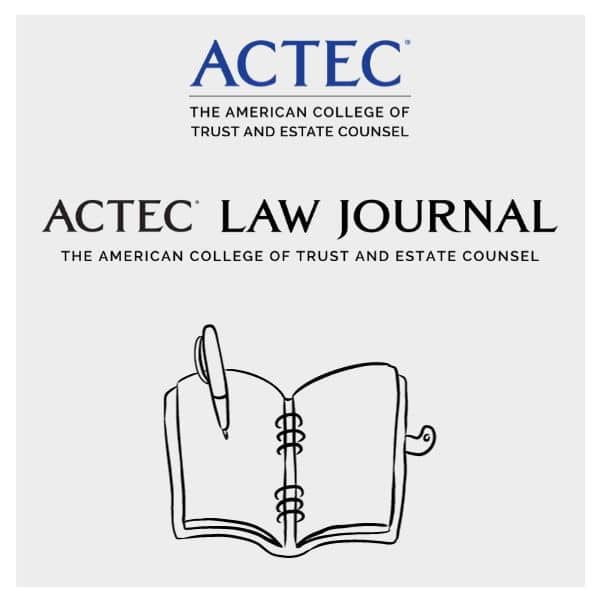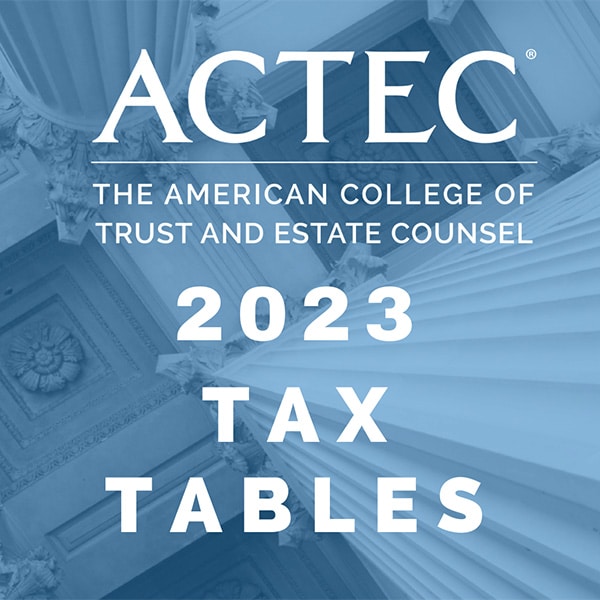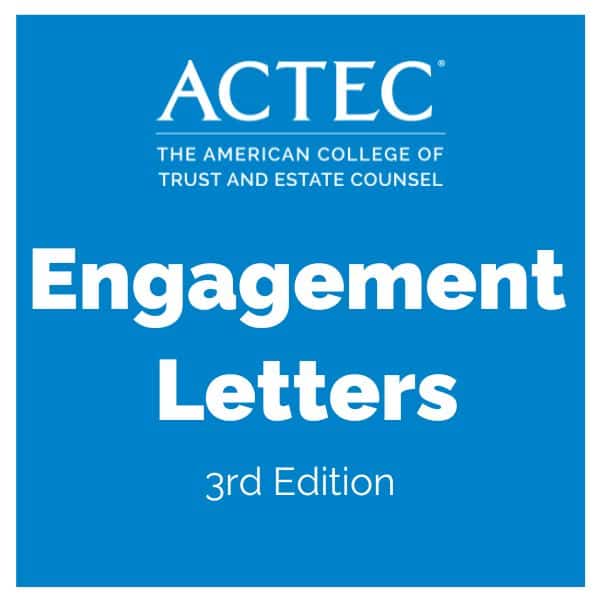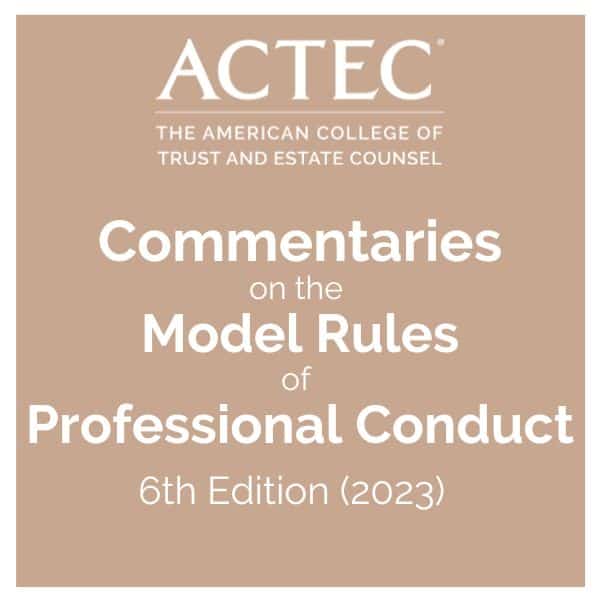Publications
ACTEC Law Journal

ACTEC Law Journal is a unique, high-level academic journal that not only explores tax, trust and estate topics in depth, but deals with the practical consequences and applications of the rapidly changing rules in these areas of law. It is published three times a year and mailed free of charge to ABA-accredited law schools.
ACTEC Law Journal welcomes the submission of articles. Articles should be submitted to the editor at journal@actec.org. Potential authors are encouraged to consult ACTEC Law Journal’s Information for Authors and Author’s Agreement and ACTEC Law Journal Brief Guide to Citation Form.
ACTEC Tax Tables

This publication was compiled for the College by ACTEC Fellows Susan T. Bart and Karen S. Gerstner.
The ACTEC Tax Tables are a handy resource and guide to frequently used tax information, revised through April 18, 2023.
The Advance Directives: Counseling Guide for Lawyers

The ABA Commission on Law and Aging has released a new free tool, The Advance Directives: Counseling Guide for Lawyers. Research on advance care planning shows that people talk to their lawyers as much or more often than to their doctors about advance directives. The Guide will help lawyers provide more effective healthcare advance directives for their clients. It provides a counseling checklist and eight practice principles through the advance care planning process, plus an extensive resource list of tools to help clients sort through their personal values, goals, and wishes regarding future healthcare decisions.
Engagement Letters

The American College of Trust and Estate Counsel released the 3rd Edition of Engagement Letters, created by the ACTEC Professional Conduct Committee with the financial support of the Foundation. The Engagement Letters are a critical step in creating professional relationships with clients.
Rules of Professional Conduct

The ACTEC Commentaries on the Model Rules of Professional Conduct continues the tradition of providing guidance particular to estate and trust practitioners. The Fifth Edition update to the Commentaries takes account of amendments to the Model Rules adopted since the 2005 Fourth Edition, including those proposed by the American Bar Association Commission on Ethics 20/20 as adopted by the ABA in 2012 and 2013.
Fiduciary Tools
Quicken Fiduciary Accounting Templates
Templates that can be used with Quicken to effectively produce accounting reports for estates and trusts that conform to the National Accounting Standards and Model Account Formats.
Webinars
Spouses Dividing Retirement Plan Assets During Life
Recorded June 11, 2021
The American College of Trust and Estate Counsel (ACTEC) is pleased to present this special joint presentation with the American Academy of Matrimonial Lawyers (AAML). The panel discussed how to divide qualified retirement plans and IRAs during the life of the participant/owner; how such a division can help a spouse in need of government benefits qualify for the benefits but increase the other spouse’s income; and selected asset protection, state death tax, and income tax planning benefits.
Impact of ERISA Preemption on Estate Planning and Marital Matters
Recorded March 5, 2021
The American College of Trust and Estate Counsel (ACTEC) is pleased to present this special joint presentation with the American College of Employee Benefits Counsel (ACEBC) and the American Academy of Matrimonial Lawyers (AAML). The panel will provide background on the Enactment of ERISA and REA and will discuss topics that include:
- General coverage of ERISA preemption from the perspective of a plan administrator;
- Impact of preemption on the use of durable power of attorney by a plan participant;
- Impact of preemption on divorce and the use of QDROs;
- Impact of preemption on estate planning for a married couple, when a “waiver and consent” by a spouse is needed, and how it is accomplished;
- Impact of preemption on prenuptial agreements;
- Impact of preemption at the death of a participant, including how competing claims to death benefits are resolved, qualified disclaimers and whether the plan administrator can recognize them, common law elective share and augmented estate rules;
- How preemption impacts community property rules.
ACTEC/ALI CLE Webinars
Learn more about CLE accredited online webinars presented by ACTEC Fellows. Topics address a wide range of trust and estate topics for legal professionals.
VISIT THE COURSE SCHEDULE